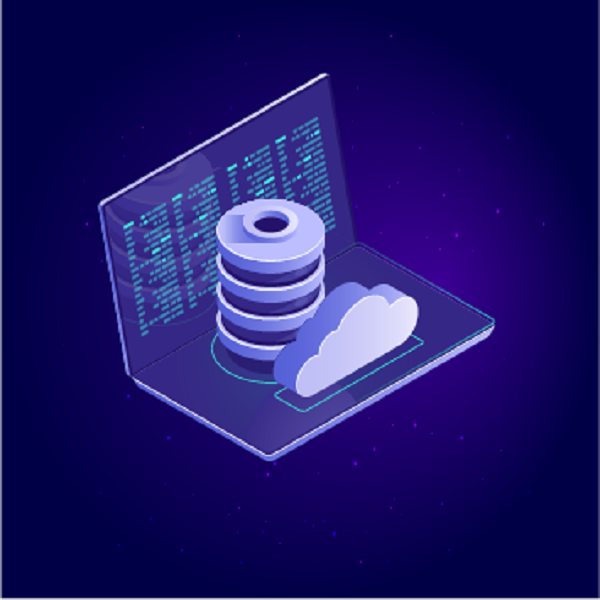Residential Proxies
Allowlisted 200M+ IPs from real ISP. Managed/obtained proxies via dashboard.

Proxies
Residential Proxies
Allowlisted 200M+ IPs from real ISP. Managed/obtained proxies via dashboard.
Residential (Socks5) Proxies
Over 200 million real IPs in 190+ locations,
Unlimited Residential Proxies
Use stable, fast, and furious 700K+ datacenter IPs worldwide.
Static Residential proxies
Long-lasting dedicated proxy, non-rotating residential proxy
Dedicated Datacenter Proxies
Use stable, fast, and furious 700K+ datacenter IPs worldwide.

Web Unblocker
View content as a real user with the help of ABC proxy's dynamic fingerprinting technology.
Proxies
API
Proxy list is generated through an API link and applied to compatible programs after whitelist IP authorization
User+Pass Auth
Create credential freely and use rotating proxies on any device or software without allowlisting IP
Proxy Manager
Manage all proxies using APM interface

Proxies
Residential Proxies
Allowlisted 200M+ IPs from real ISP. Managed/obtained proxies via dashboard.
Starts from
$0.77/ GB
Residential (Socks5) Proxies
Over 200 million real IPs in 190+ locations,
Starts from
$0.045/ IP
Unlimited Residential Proxies
Use stable, fast, and furious 700K+ datacenter IPs worldwide.
Starts from
$79/ Day
Rotating ISP Proxies
ABCProxy's Rotating ISP Proxies guarantee long session time.
Starts from
$0.77/ GB
Static Residential proxies
Long-lasting dedicated proxy, non-rotating residential proxy
Starts from
$5/MONTH
Dedicated Datacenter Proxies
Use stable, fast, and furious 700K+ datacenter IPs worldwide.
Starts from
$4.5/MONTH
Knowledge Base
English
繁體中文
Русский
Indonesia
Português
Español
بالعربية


This article systematically explains the core technical principles and practical applications of BeautifulSoup4 in the Python ecosystem, and combines proxy IP technology to solve problems such as block avoidance and dynamic loading and parsing in web data collection, providing developers with an implementation path for a high-availability crawler system.
BeautifulSoup4's technical positioning and core value
Technical architecture analysis
BeautifulSoup4 (hereinafter referred to as BS4) is the most widely used HTML/XML parsing library in Python. Its design philosophy is to achieve structured extraction of unstructured data through DOM tree traversal and selector syntax. Compared with regular expressions, BS4 provides the following differentiated advantages:
Fault tolerance first: Automatically repair common HTML irregularities such as missing tags and nesting errors to reduce the risk of parsing interruption.
Multiple parser support: compatible with backend engines such as lxml and html5lib, which can be flexibly switched according to the complexity of the document (e.g. lxml is suitable for performance-sensitive scenarios, and html5lib is good at handling messy tags).
Chain operation interface: supports cascade calls of find(), select() and other methods to simplify the data location logic of nested structures.
Typical application scenarios
Static web page content extraction: capturing fixed-location data such as news headlines and product prices.
Local data cleaning: secondary extraction of structured fields from API response fragments or HTML rendered by JavaScript.
Crawler framework integration: Collaborate with Scrapy, Requests and other libraries to build a complete data pipeline.
Efficient data extraction strategy based on BS4
Selector Syntax Essentials
Advanced CSS Selectors:
soup.select('div#main > ul.list li:not(.ad)') # Locate the non-advertising li in the direct child ul (class list) under the div with ID main
Attribute filtering and regular combination:
soup.find_all('a', href=re.compile(r'/product/\d+')) # Matches links containing product IDs
Performance optimization practice
Parser selection criteria:
For documents under 10MB, lxml is 5-10 times faster than html5lib
For documents with high fault tolerance requirements, html5lib's parsing success rate increased by 30%
Incremental parsing technology:
from bs4 import SoupStrainer
strainer = SoupStrainer('div', class_='product-card') # Only parse the div containing the product card
soup = BeautifulSoup(html, 'lxml', parse_only=strainer)
Collaborative application of proxy IP technology and BS4 crawler
In large-scale data collection, proxy IP is the core tool to avoid IP blocking. Taking abcproxy's service as an example, its product matrix can provide the following support for the BS4 project:
Key strategies for anti-crawler
1. IP rotation mechanism:
Use abcproxy residential proxy to dynamically change the request IP and cooperate with BS4 resolver to break the access frequency limit
Sample code:
import requests
from bs4 import BeautifulSoup
proxies = {
'http': 'http://user:pass@gateway.abcproxy.com:2000',
'https': 'http://user:pass@gateway.abcproxy.com:2000'
}
response = requests.get(url, proxies=proxies)
soup = BeautifulSoup(response.text, 'lxml')
2. Geolocation simulation:
Obtain IP addresses in a specific region (such as a state in the United States) through static ISP proxies to collect region-specific content (such as localized pricing data)
3. Session retention optimization:
For websites that require login, use the same data center proxy to maintain cookie validity to avoid field loss due to session interruption during BS4 parsing.
Dynamic loading solution
When the target page relies on JavaScript rendering, BS4 needs to be coordinated with other tool chains:
Selenium+BS4 workflow:
Use Selenium to control the browser to load the complete DOM
Use abcproxy's residential proxy to simulate real user environments and reduce the characteristics of automated tools
API Reverse Engineering:
Capture XHR requests through browser developer tools, call the API directly and parse the JSON/XML response with BS4
Challenges and Solutions
Block high-frequency access IP
BS4 countermeasures: reduce the request interval and increase the random delay to reduce the probability of triggering risk control.
Proxy IP enhancement: Combined with the automatic rotation of abcproxy residential proxy IP pool, it simulates the geographical distribution and access behavior of real users.
Verification code trigger
BS4 countermeasures: Identify the verification code insertion point in the page (such as a specific response status code or HTML tag), and dynamically switch the request path to bypass the verification process.
Proxy IP enhancement: Use different ISP proxies to disperse traffic and avoid a single IP being marked due to frequent triggering of verification codes.
Dynamic element loading failed
BS4 solution: Integrate the Selenium rendering engine to obtain the complete DOM, and then parse the static content through BS4.
Proxy IP enhancement: Use abcproxy static ISP proxy to maintain network environment stability and reduce page loading interruptions caused by IP fluctuations.
Randomize data field positions
BS4 solution: Combine multiple selectors (such as CSS paths, attribute matching, and regular expressions) for redundant positioning to cover page structure changes.
Proxy IP enhancement: Collect sample data through proxys in multiple regions, analyze the differences in page layouts in different regions, and dynamically adjust the parsing strategy.
Technological evolution and future directions
AI-assisted analysis
Combined with computer vision (CV) models to identify text layout in images, BS4 selector paths are automatically generated to improve the efficiency of unstructured data processing.
Headless browser deep integration
Develop a joint plug-in for BS4 and Playwright to achieve integrated control of browser rendering and parsing, while simulating a multi-device environment through proxy IP technology.
Compliance Enhancement
Leverage abcproxy’s region-locked proxy feature to ensure data collection complies with geo-fencing requirements of regulations such as GDPR and avoid legal risks.
As a professional proxy IP service provider, abcproxy provides a variety of high-quality proxy IP products, including residential proxy, data center proxy, static ISP proxy, Socks5 proxy, unlimited residential proxy, suitable for crawler development, data collection and other application scenarios. If you are looking for a reliable proxy IP service, welcome to visit the abcproxy official website for more details.
Featured Posts
Popular Products
Residential Proxies
Allowlisted 200M+ IPs from real ISP. Managed/obtained proxies via dashboard.
Residential (Socks5) Proxies
Over 200 million real IPs in 190+ locations,
Unlimited Residential Proxies
Use stable, fast, and furious 700K+ datacenter IPs worldwide.
Rotating ISP Proxies
ABCProxy's Rotating ISP Proxies guarantee long session time.
Residential (Socks5) Proxies
Long-lasting dedicated proxy, non-rotating residential proxy
Dedicated Datacenter Proxies
Use stable, fast, and furious 700K+ datacenter IPs worldwide.
Web Unblocker
View content as a real user with the help of ABC proxy's dynamic fingerprinting technology.
Related articles

How does idope improve data collection efficiency
This article explores the core role of idope in data collection, analyzes how proxy IP can optimize its operating efficiency, and analyzes the adaptation solution provided by abcproxy.

Big Data Ecommerce: Core Value and Application
This article discusses the technical architecture and commercial value of Big Data Ecommerce, and analyzes the transformation path of the e-commerce industry driven by data. abcproxy provides underlying support for big data e-commerce through proxy IP services, helping enterprises achieve precise operations.

Class in XPath: Syntax, Application and Advanced
This article systematically explains the core principles and practical applications of the contains(@class, 'value') selector in XPath, covering key scenarios such as dynamic class name processing, multiple class name matching, performance optimization, and provides solutions to deal with the complex class name structure of modern Web frameworks.